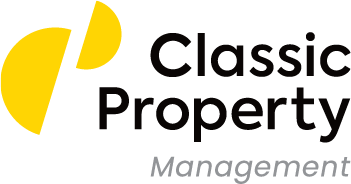Looking for the perfect property manager can be overwhelming to find the right person for your needs, so it’s important to know what credentials and qualities are necessary. When searching through websites and testimonials, it’s vital that you make an excellent choice to look after your valuable investment. Here are some ideas to get you started on the journey.
Industry knowledge
A good property manager should know the local market extensively and understand current rental rates, trends, and regulations that could affect their clients. Property managers need a deep understanding of landlord-tenant law to protect your asset and prevent legal issues.
Communication skills
It is also essential that a property manager has excellent communication skills with tenants, landlords and other stakeholders involved in managing properties, such as contractors or real estate agents. A successful candidate will also be able to handle any unexpected problems quickly and efficiently while always maintaining professionalism – this includes responding promptly to emails or phone calls from tenants regarding maintenance requests, rent payments, etc.
A key attribute is an ability to talk through any issues calmly and assertively. Property Management usually requires quite a bit of negotiation. Negotiation skills can be developed through training and experience. Still, the core skill needed is being a good listener and having the ability to understand that while the agreement is the foundation document of a tenancy, life sometimes happens, and compassion is sometimes required.
Emergencies also require a calm and action-oriented personality. As the recent flooding in New Zealand has clearly demonstrated, emergencies do happen, and the ability to solve problems quickly and efficiently is a must.
Organisational skills
Property management involves data capture and management. This may be streamlined by using technology solutions but maintaining up-to-date, accurate records is essential—likewise, the management of supplier relationships for any required services for property maintenance and repairs. Knowing the best person to resolve an issue and ensuring the landlord is communicated with along the way requires discipline and time. Don’t be afraid to enquire about what systems and processes are in place for your particular property management company.
Financial literacy
Managing an asset as valuable as a house requires diligence and an understanding of fiscal administration. While there are multiple software applications, it is vital that a Property Manager understands the correct legal requirements and remains aware of any payment issues with tenants. This would include tracking rent payments accurately on time every month and collecting late fees if applicable.
Experience!
Last but by no means least, experience is one of the most valuable attributes of a Property Manager. It can be challenging as it requires ongoing availability, an ability to engage with all walks of life, and occasionally facilitating confronting situations. There is no substitute for knowing what to ask and how to make sage decisions as an agent acting on behalf of the owner. The support of an organisation with employee support mechanisms and backup should a Property Manager be unavailable is also valuable.
Homework
There are some ways you can do your homework to give you peace of mind!
- Ask for testimonials.
Occasionally managers may move to a new employer, but they cannot take google reviews over with them but could supply them if requested. - Look for reputable companies with established systems and relationships.
Property Managers need support and access to tradespeople at short notice. Established businesses will have strong relationships with suppliers and will have more cash flow support. - Ask about rates.
Some agents have special rates for new homes.


